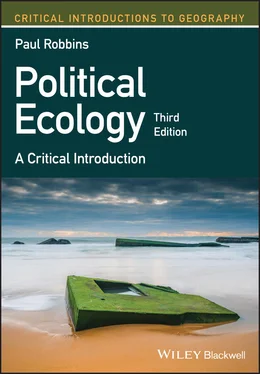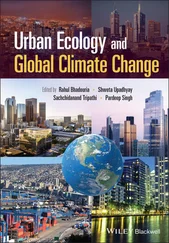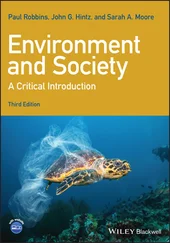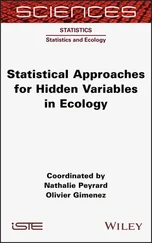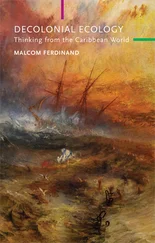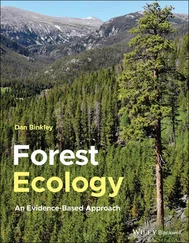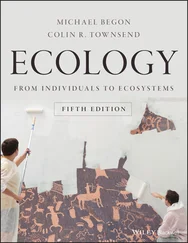1 ...8 9 10 12 13 14 ...19 The Determinist Context
The Building Blocks
Peter Alexeivich Kropotkin was born a Russian aristocrat in 1842, but by the time he died in 1921 he had become a globally known anarchist philosopher whose writings had done as much to explore the linkage between people and the environment as any in that tumultuous century. As an activist, a keen observer of nature, and a scientific explorer and ethnographer, Kropotkin was an early political ecologist.
As a geographer, Kropotkin set out in 1865 to explore the most remote areas of the Russian Far East where the Sayan highlands border Manchuria. There were no charts of the region at this time and in preparing for the expedition he came across a map prepared by a Tungus hunter with the point of a knife on tree bark. “This little map,” the explorer explained, “so struck me by its seeming truth to nature that I fully trusted to it” (Woodcock and Avakumovic 1990, p. 72). This trust for the environmental knowledge of local people was reinforced throughout his journey. Traveling for months with a local Yakut man, Kropotkin traversed 800 miles of rugged mountains. During his journey he encountered and described farmers, herders, and hunters who all organized their lives to thrive under what urban Russians would have considered unthinkably adverse conditions.
Like his previous expeditions, this arduous trip reinforced his growing appreciation for “the constructive work of the unknown masses, which so seldom finds any mention in books, and the importance of that constructive work in the growth of forms of society” (Woodcock and Avakumovic 1990, pp. 59–60). The evidence amassed during these journeys, of plants, people, and animals making a living from the land, convinced Kropotkin, moreover, that the survival and evolution of species is propelled by collective mutual aid, cooperation, and organization between individuals.
Yet such research was by no means the norm. For the most part, early geography and nascent anthropology were the tools of social and political control, reproducing the political and ecological order that critical human–environment researchers would later challenge and undermine. Linking environment to society through a tradition of environmental determinism , scientific and field researchers were servants of colonialism and empire.
Rooted in the theories of nineteenth‐century geographer Friedrich Ratzel and championed later in North America by the influential researchers William Morris Davis, Ellsworth Huntington, and Ellen Churchill Semple, the determinist approach maintained that geographic influences determined human capabilities and cultures, with its practitioners attempting to codify that thesis into scientific practice. Huntington was perhaps its most prolific exponent: “Today a certain peculiar type of climate prevails wherever civilization is high. In the past the same type seems to have prevailed wherever a great civilization arose. Therefore, such a climate seems to be a necessary condition of great progress” (Huntington 1915, p. 9). The empirical vacuousness of this thesis need not be belabored here. In even simple analysis, European and American environments have proved no more productive or inspiring for human life than any other (Blaut 1999, 2000). Where confronted with contradiction (e.g., “high” civilization in “bad” climate), Huntington and his colleagues generally retreated behind “complex” and “competing” factors and poorly defined trajectories of climatic change, while harsh climates were simultaneously used to explain the ingenuity of some groups and the cultural limits of others.
The implication of this theory in the perpetuation of global, imperial, racist rule by Euro‐Americans should be immediately evident. By even asking the question “why are Anglos more productive, civilized, and advanced?” the fallacious assumptions have already been made that first, they are, and second, it has to do with something inherent in the place or people involved, rather than being a consequence of historical and geographical interactions with the rest of the world. And in “scientifically” attempting to untangle the ancient question of heredity or environment, “Race or Place?” as Huntington put it in his classic volume Civilization and Climate , the fundamental political and historical questions of domination, colonization, and extermination are erased. In the answer, moreover, came a confident and scientific rationale for Euro‐American dominance – it's only natural . Indeed, by rendering colonial domination an environmental inevitability, the practice of colonialism comes to appear apolitical .
The research implications for this kind of work were equally stultifying. By assuming the role of nature to be a determinant, fixed, and unidirectional influence, the complex influences of humanity upon non‐human systems were lost altogether. As a result, nature was seen as a one‐way force that determined cultural development, even at the very moment that the world of nature, ironically, was transforming under the processes of industrialization. Despite deleterious changes in air, land, and water resulting from economic and political developments of the era (smokestack industries, urban waste, and deforestation), nature was viewed during this period as beyond human influence.
A political ecological alternative
In this imperialist context, where environmental influences were understood to determine the superiority and inferiority of human races through competitive natural selection, and where human influences on the environment were viewed as unworthy of examination, counter‐movements were growing. In the work of several early researchers a radical alternative to these dominant modes of explanation emerged, an incipient political ecology. Perhaps most prominent amongst these early dissenters was Kropotkin.
In contrast to the political and social conservatism associated with the geography of the period, Kropotkin's experience in the field brought him to renounce his princely title, to espouse a revolutionary socially cooperative anarchism, and to resist and dismantle the hierarchic social conditions of the time (Kropotkin 1990). In his work he sought simultaneously to tear down the socially loaded assumptions of contemporary, taken‐for‐granted, scientific knowledge, and to establish the empirical basis for an alternative model of social and natural organization. His research took a political ecological “hatchet” to the elitism and classism that pervaded natural science, while “seeding” the field with rich empirical investigations and normative visions of alternative futures.
Kropotkin's hatchet was aimed at the “scientific” socio‐biological emphasis on competition that many other scholars saw in nature. Kropotkin argued that the case for competition as the central component of evolution was a product less of empirical observations of natural phenomena than of reading a social hierarchy into the natural world (Kropotkin 1888). Kropotkin searched throughout the animal kingdom and human history and pointed to cooperation being central to survival and selection, and therefore to evolution. His rigorous field observations made way for an argument not only about the state of nature, but also about the possibilities for society, free from domination, violence, and hierarchy.
Kropotkin's approach to human–environment interaction sets a precedent for the kind of work that would follow more than a century later. The work resembles contemporary political ecology (and its progenitor, cultural ecology) in its focus on production, archival and field‐based empirical approach, concern for marginalized and disenfranchised people, interest in local environmental knowledge, and concentration on the landscape as an object of explanation.
Читать дальше
